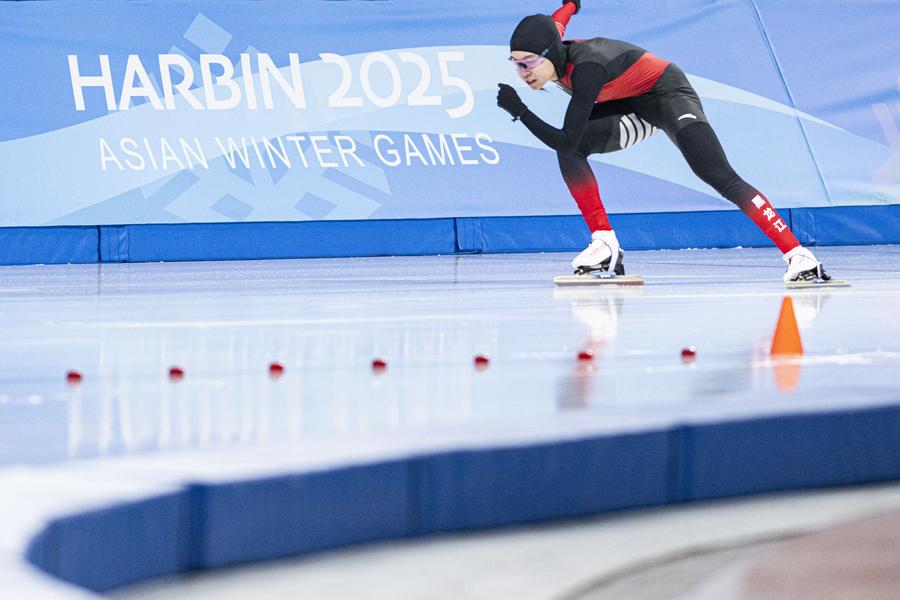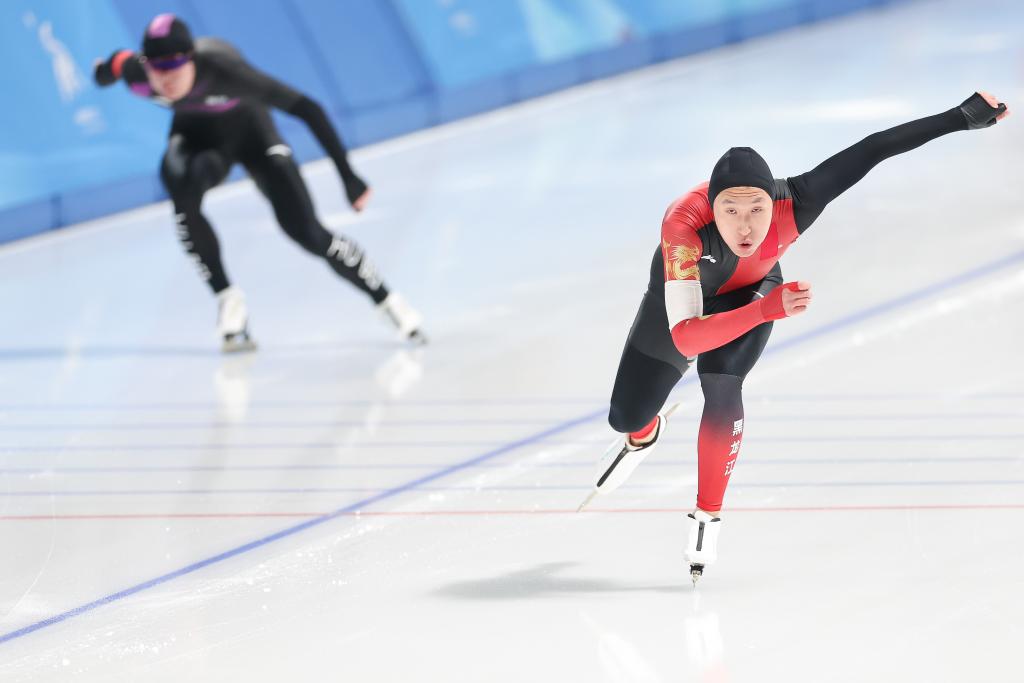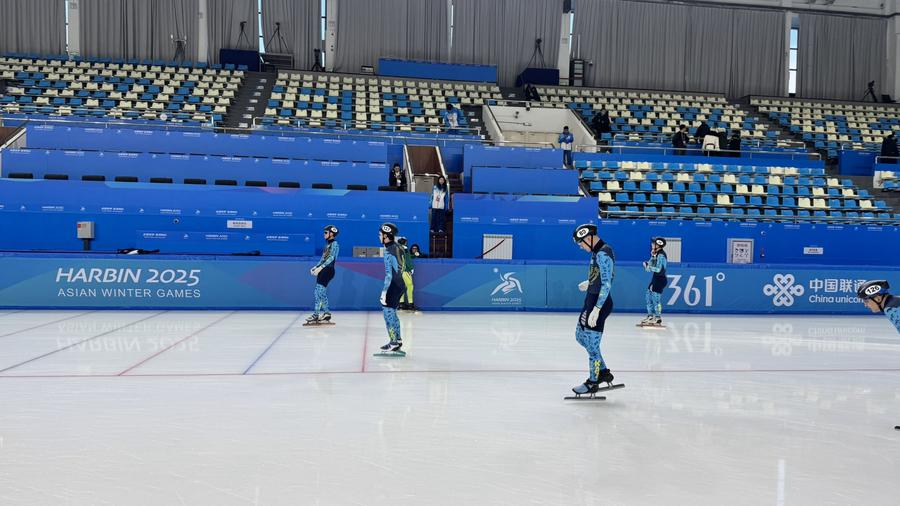
Chinese skater Gao Chenxi competes in a test event of the Harbin Asian Winter Games at the Heilongjiang Ice Training Centre on December 14, 2024. (Xinhua/Xie Jianfei)
The ice rink at the Heilongjiang Ice Training Centre has been praised by experts, athletes and coaches from teams including Kazakhstan and Republic of Korea, before the opening of the Harbin Asian Winter Games.
HARBIN, Feb 5 (Xinhua)—The 9th Asian Winter Games in Harbin, the capital of China's northernmost Heilongjiang Province, is set to open on Friday, with experts praising the ice conditions at the Heilongjiang Ice Training Centre.
"The ice is perfect for short track speed skaters to achieve great results," said Xu Xun, a technical delegate from the Asian Skating Union. He noted that the ice temperature, indoor temperature, and humidity all meet international standards, allowing athletes to perform at their peak.
Xu, working alongside Kim Sohee of the Republic of Korea, a technical delegate appointed by the International Skating Union (ISU), emphasised the meticulous preparations for the competition.
"Our main responsibility is to ensure that all technical requirements for skating are met, including the ice conditions, venue facilities, athlete lounges, and the mixed zone. We'll fully record the relevant data and check everything," Xu said.

Chinese skater Xiao Jinbao (R) competes in a test event of the Harbin Asian Winter Games at the Heilongjiang Ice Training Centre on December 15, 2024. (Xinhua/Zhang Tao)
Harbin has a long history of hosting top-tier skating events, with its ice-making team boasting more than 40 years of experience. The team has worked on major international competitions, including the World Cup and World Championships.
According to Yu Jinqiao, who has maintained ice rinks since 2009, the ice surface at Heilongjiang Ice Training Centre is kept between minus six and minus seven degrees Celsius, with a thickness of 3.7 centimeters. The indoor temperature remains around 15 degrees Celsius, and humidity is maintained at 35 percent—all in line with ISU standards.
"Our team resurfaces the rink multiple times a day using triple-filtered purified water, and each resurfacing takes around 20 minutes," Yu said. He added that, unlike traditional fuel-powered machines, the event is using electric ice resurfacers for an eco-friendlier approach.
As the competition nears, teams from Republic of Korea, Kazakhstan, India, and China have already begun training at the venue.
"Many athletes tell us that the ice is perfect," Xu said.

Kazakhstan's skaters practice at the Heilongjiang Ice Training Centre. (Handout via Xinhua)
Kazakhstan's Short Track Speed Skating Team, consisting of 12 athletes, has been training at the Heilongjiang Ice Training Centre for three days.
"The rink is very good, and the ice is of high quality and fast. I think the athletes will achieve good results," said Petr Gamidov, head coach of Kazakhstan's Short Track Speed Skating Team.
"Our goals are, of course, medals, and we hope the athletes will have an interesting and fair competition," Gamidov added.
Park Ji-won, a gold medal favorite from Republic of Korea, told Maeil Business Newspaper after training on Wednesday that he felt comfortable on the ice.
"I think the ice suits me well. I believe I have better control and understanding of the ice than anyone else. I don't worry much about the ice because I believe in myself," Park said.
With Short Track Speed Skating involving aggressive, high-speed racing, ice quality is critical.
"During the relays, up to 20 athletes can be racing on the rink at the same time, which can damage the ice surface," Xu said. "Therefore, technical delegates will ensure that referees inspect the surface before every race to maintain competition fairness."
The Short Track Speed Skating events for the 9th Asian Winter Games will take place from Feb 7 to 9.
